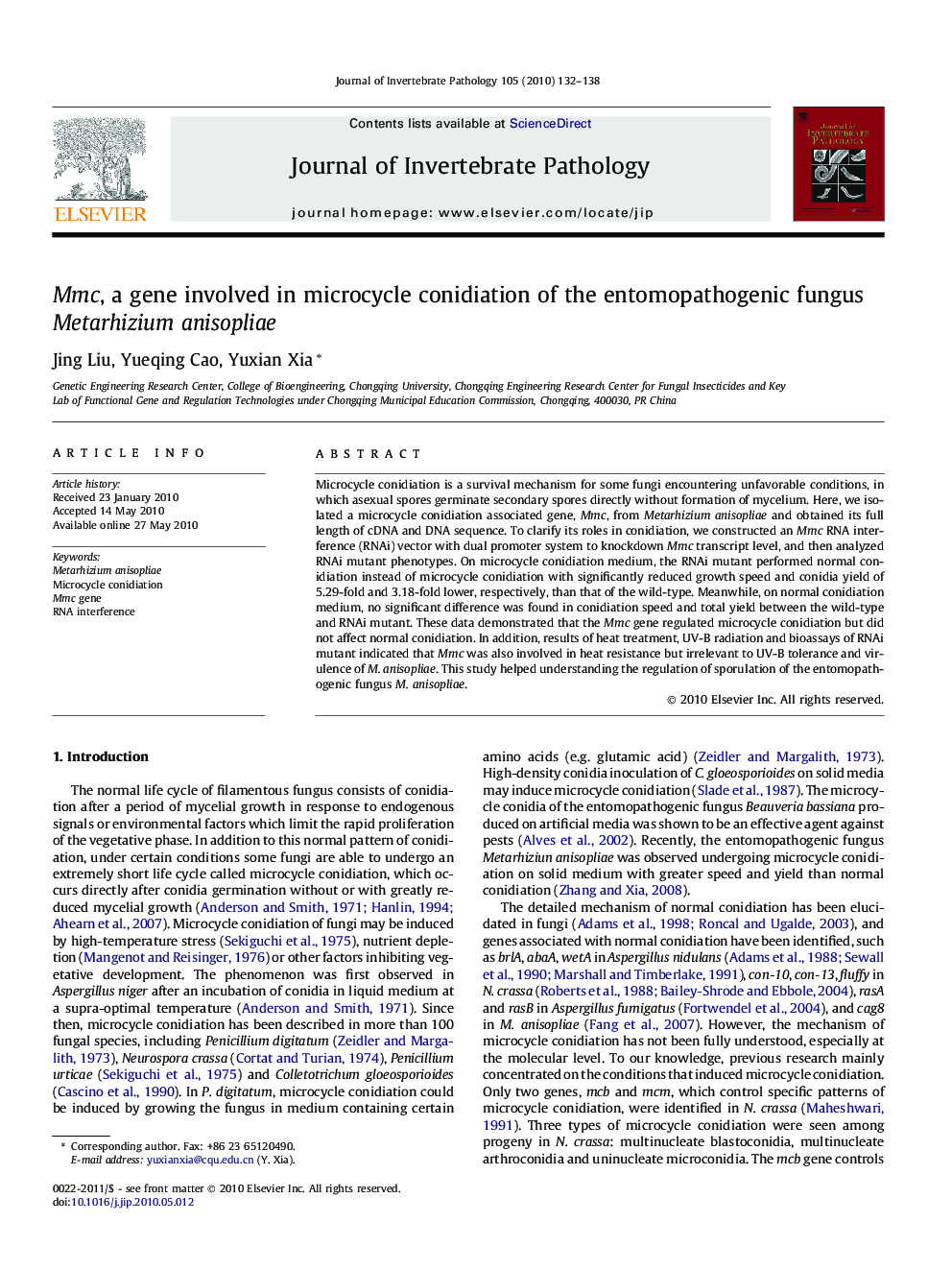| Article ID | Journal | Published Year | Pages | File Type |
|---|---|---|---|---|
| 4558128 | Journal of Invertebrate Pathology | 2010 | 7 Pages |
Abstract
Microcycle conidiation is a survival mechanism for some fungi encountering unfavorable conditions, in which asexual spores germinate secondary spores directly without formation of mycelium. Here, we isolated a microcycle conidiation associated gene, Mmc, from Metarhizium anisopliae and obtained its full length of cDNA and DNA sequence. To clarify its roles in conidiation, we constructed an Mmc RNA interference (RNAi) vector with dual promoter system to knockdown Mmc transcript level, and then analyzed RNAi mutant phenotypes. On microcycle conidiation medium, the RNAi mutant performed normal conidiation instead of microcycle conidiation with significantly reduced growth speed and conidia yield of 5.29-fold and 3.18-fold lower, respectively, than that of the wild-type. Meanwhile, on normal conidiation medium, no significant difference was found in conidiation speed and total yield between the wild-type and RNAi mutant. These data demonstrated that the Mmc gene regulated microcycle conidiation but did not affect normal conidiation. In addition, results of heat treatment, UV-B radiation and bioassays of RNAi mutant indicated that Mmc was also involved in heat resistance but irrelevant to UV-B tolerance and virulence of M. anisopliae. This study helped understanding the regulation of sporulation of the entomopathogenic fungus M. anisopliae.
Related Topics
Life Sciences
Agricultural and Biological Sciences
Ecology, Evolution, Behavior and Systematics
Authors
Jing Liu, Yueqing Cao, Yuxian Xia,
